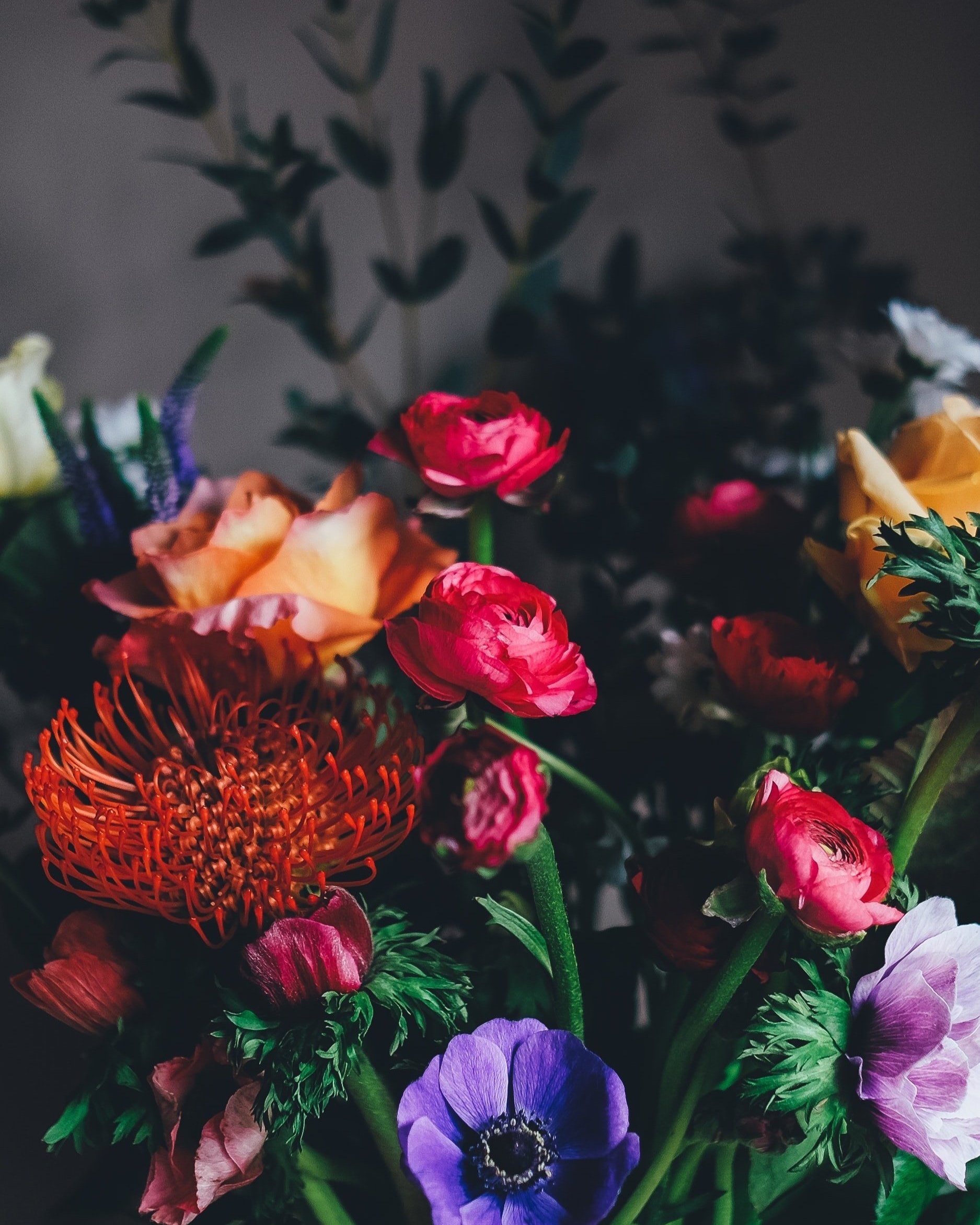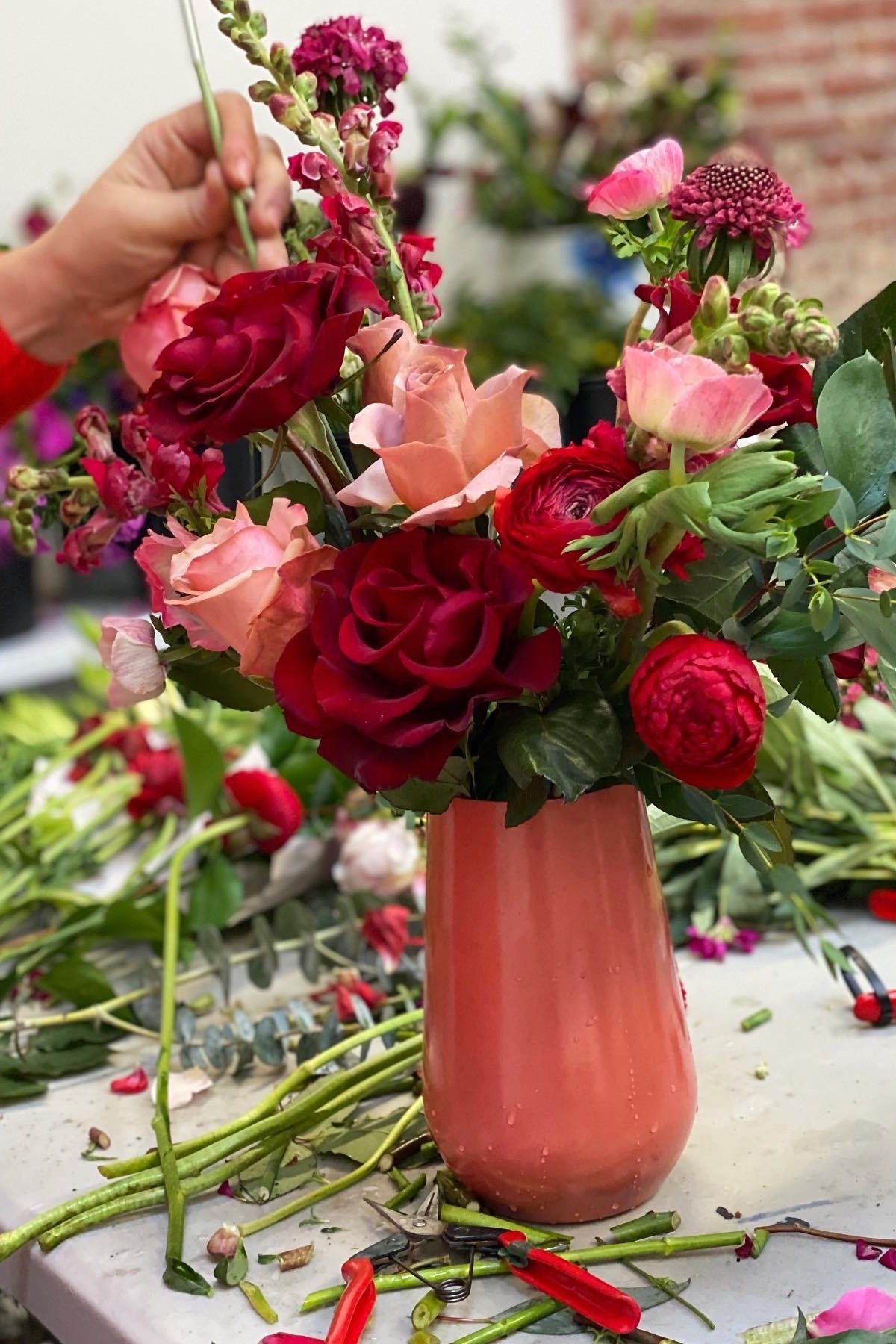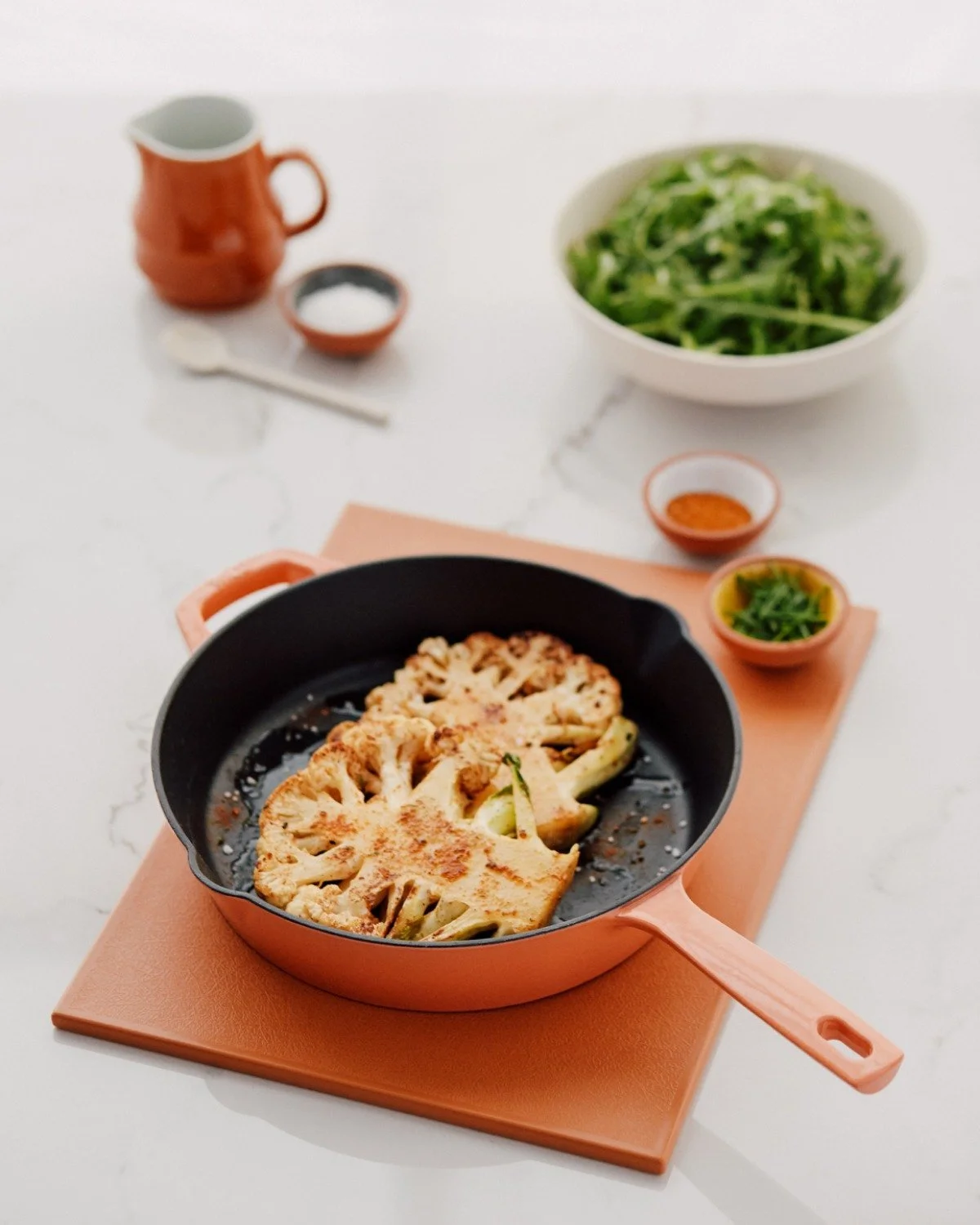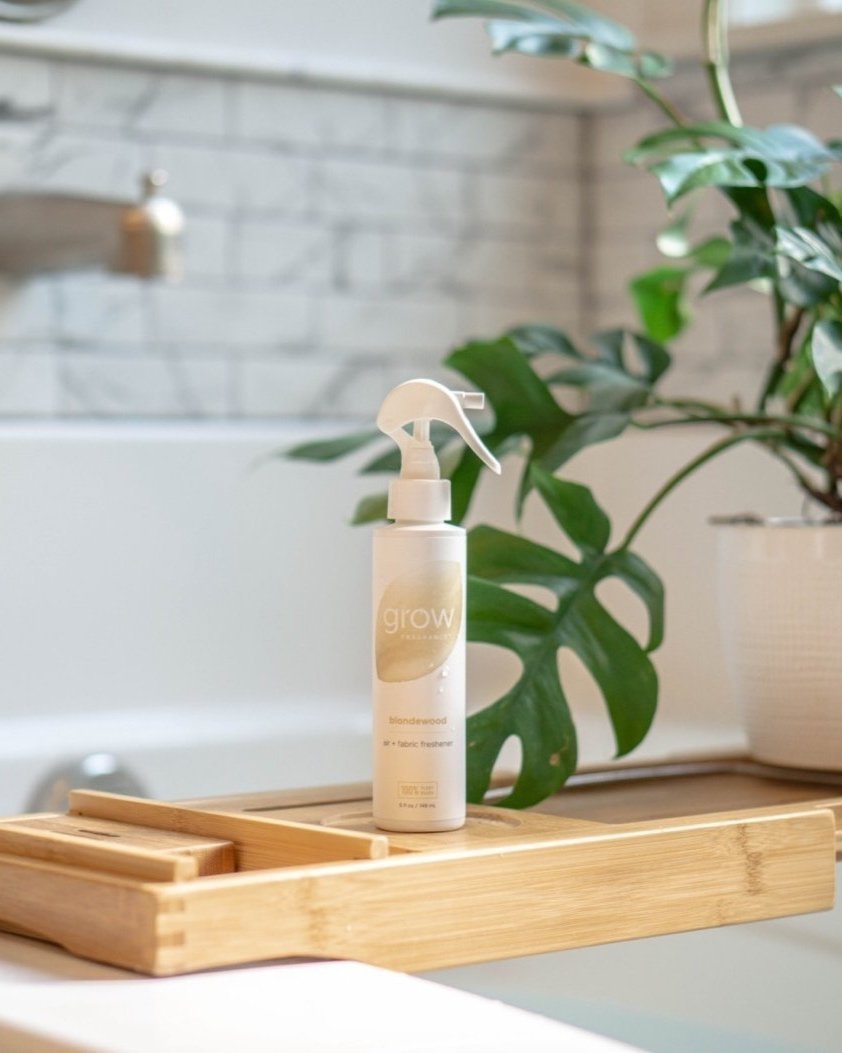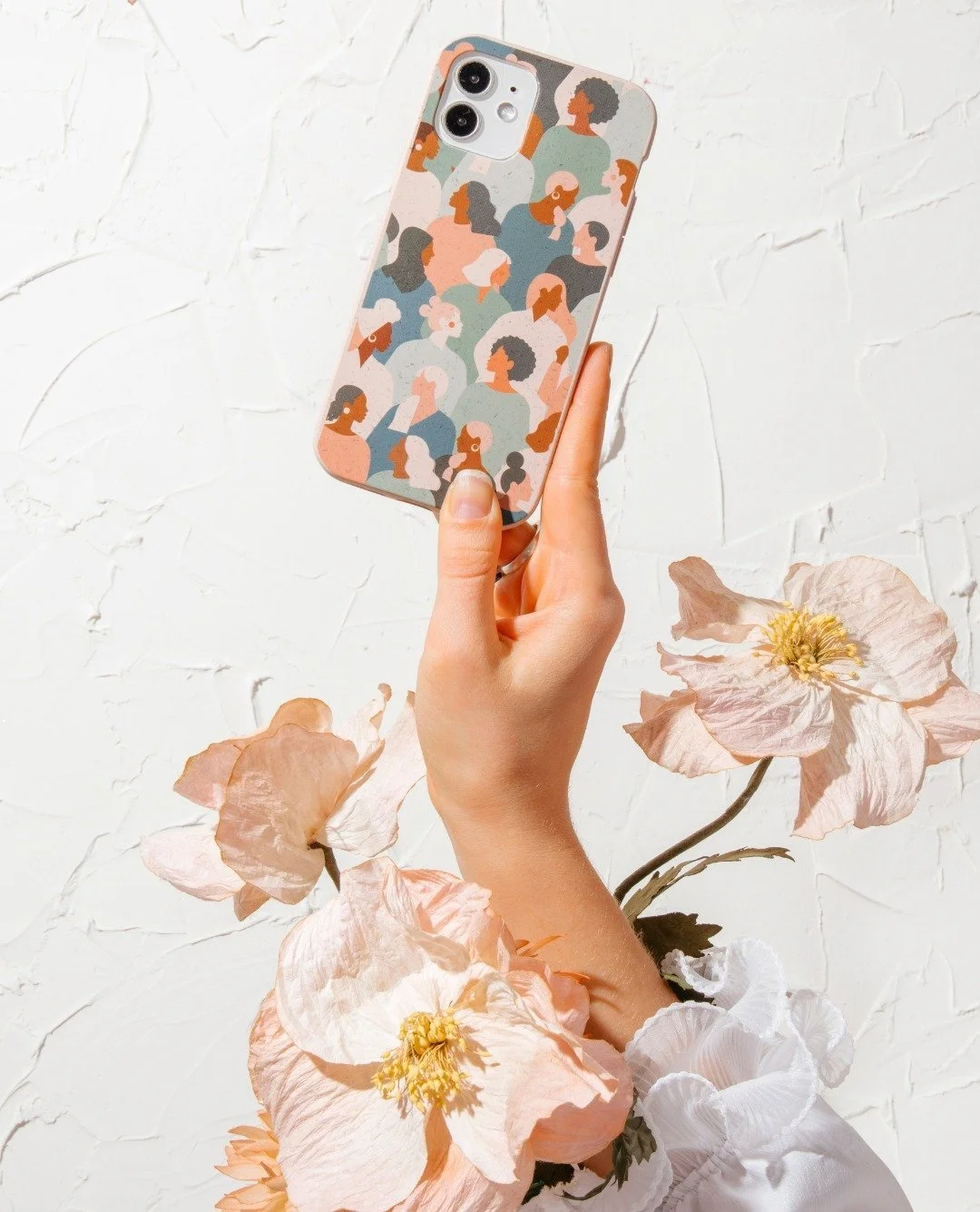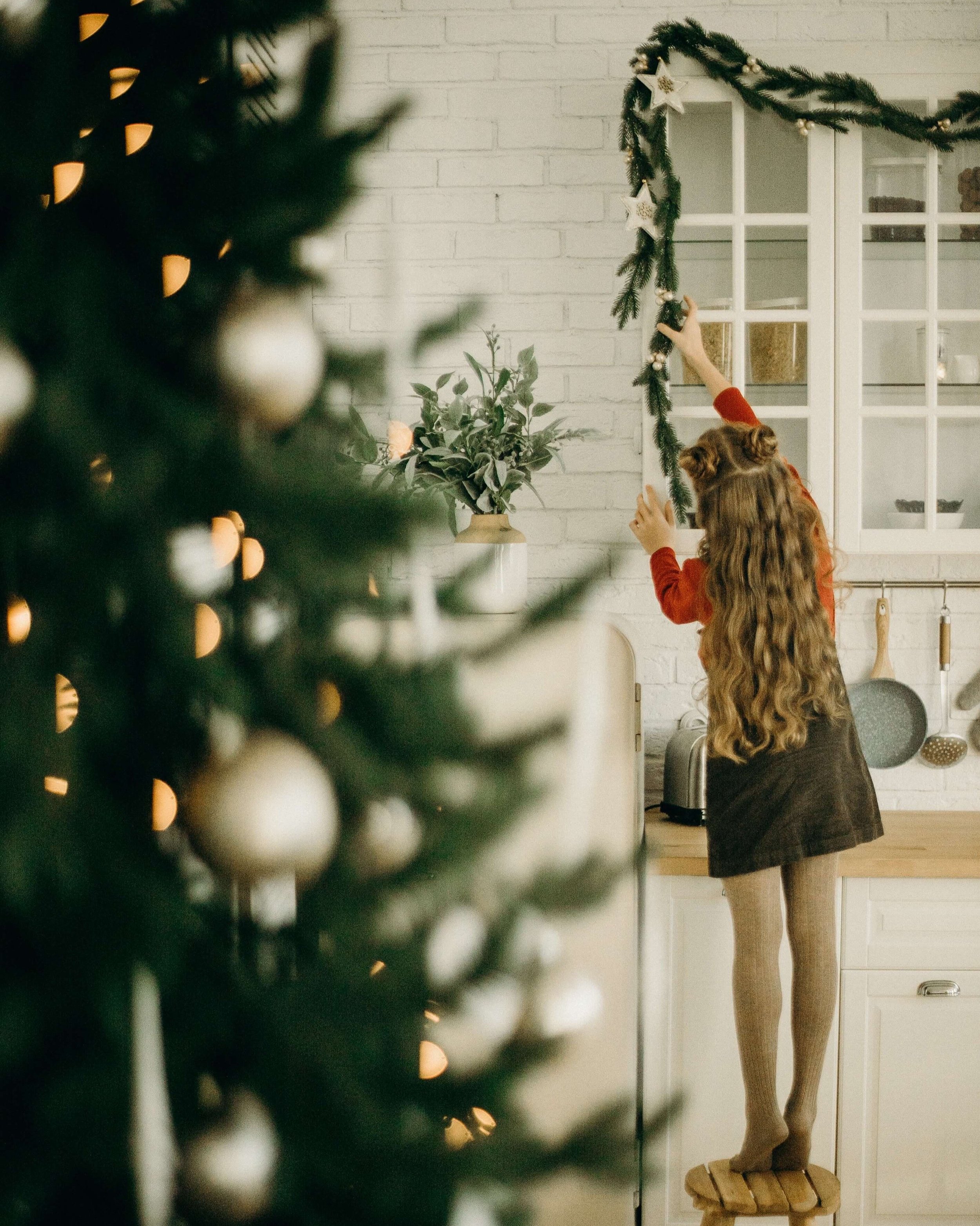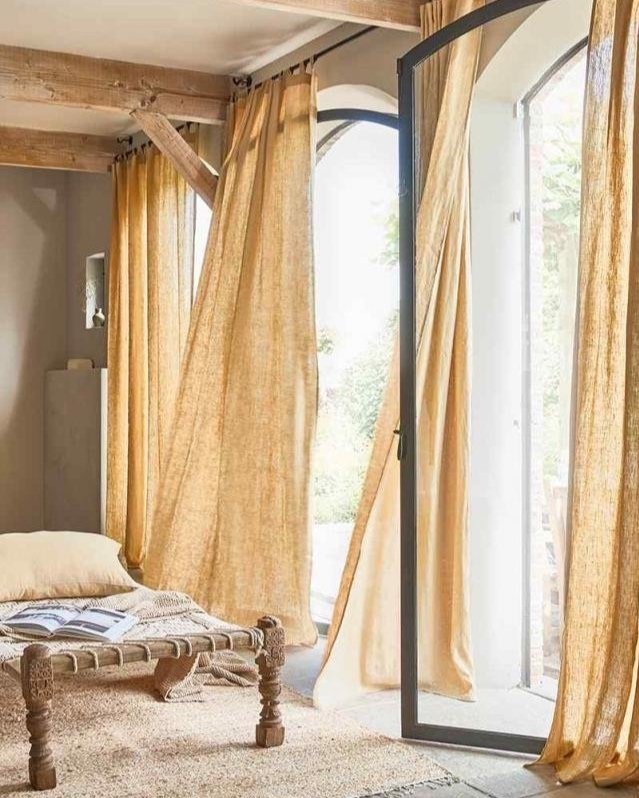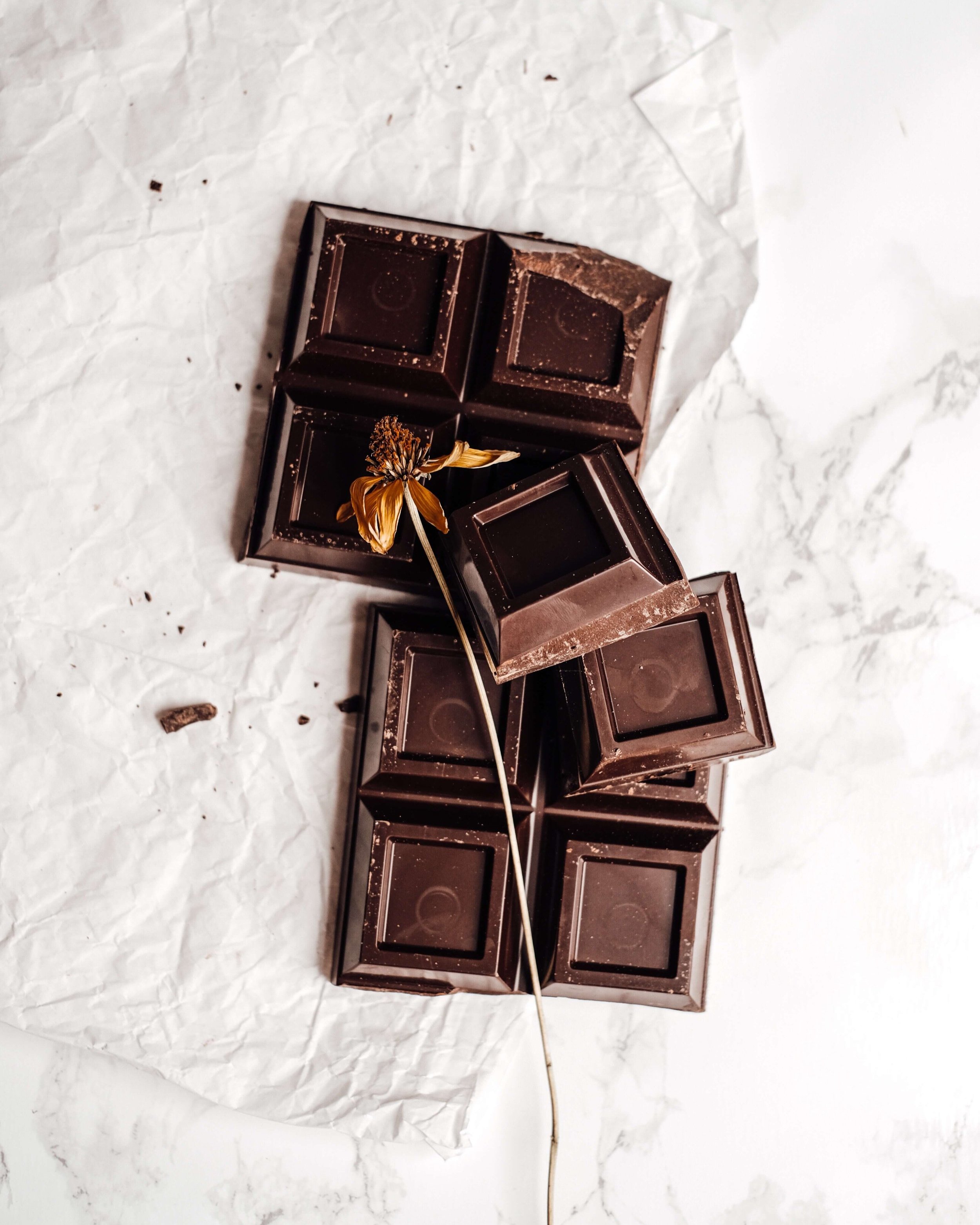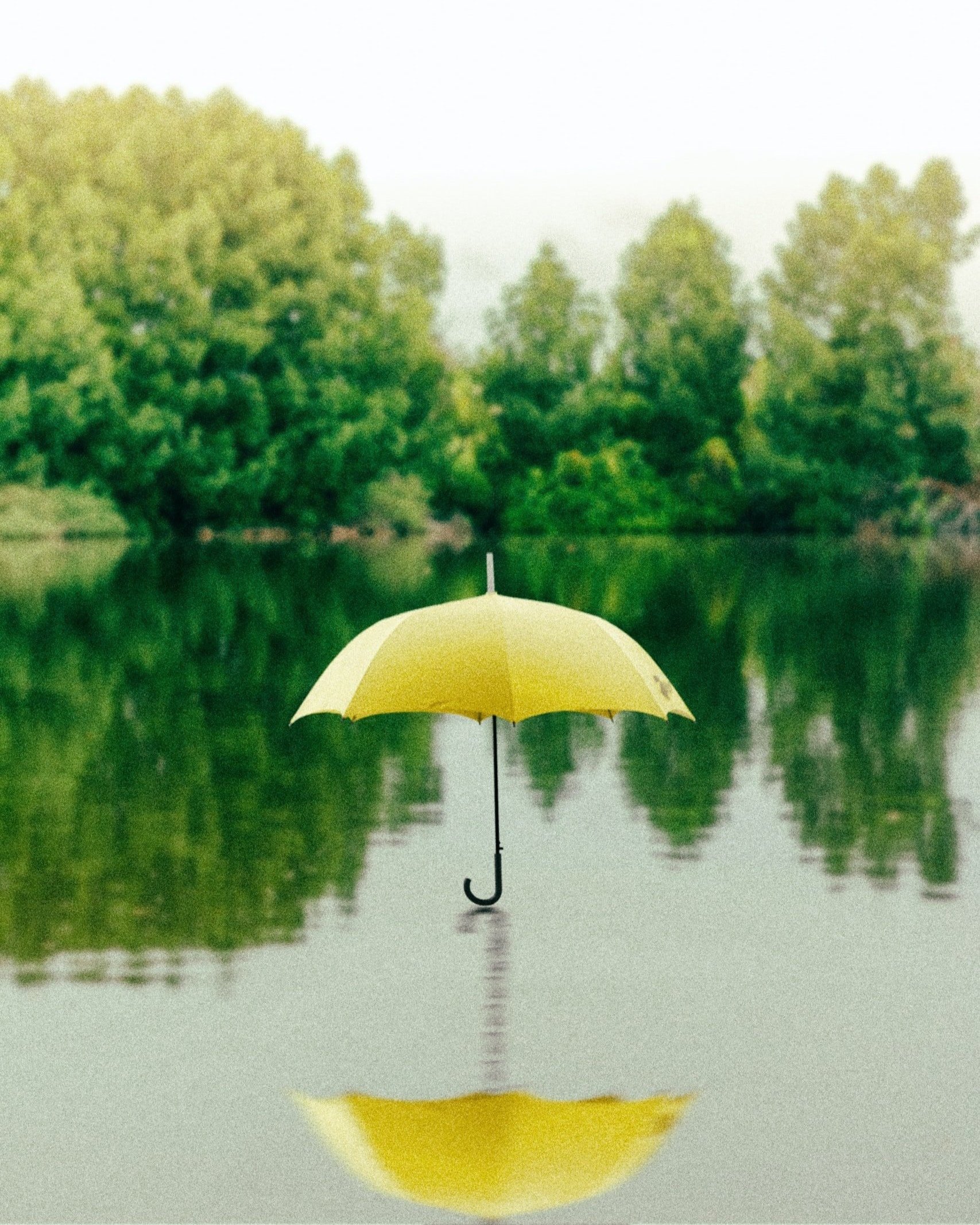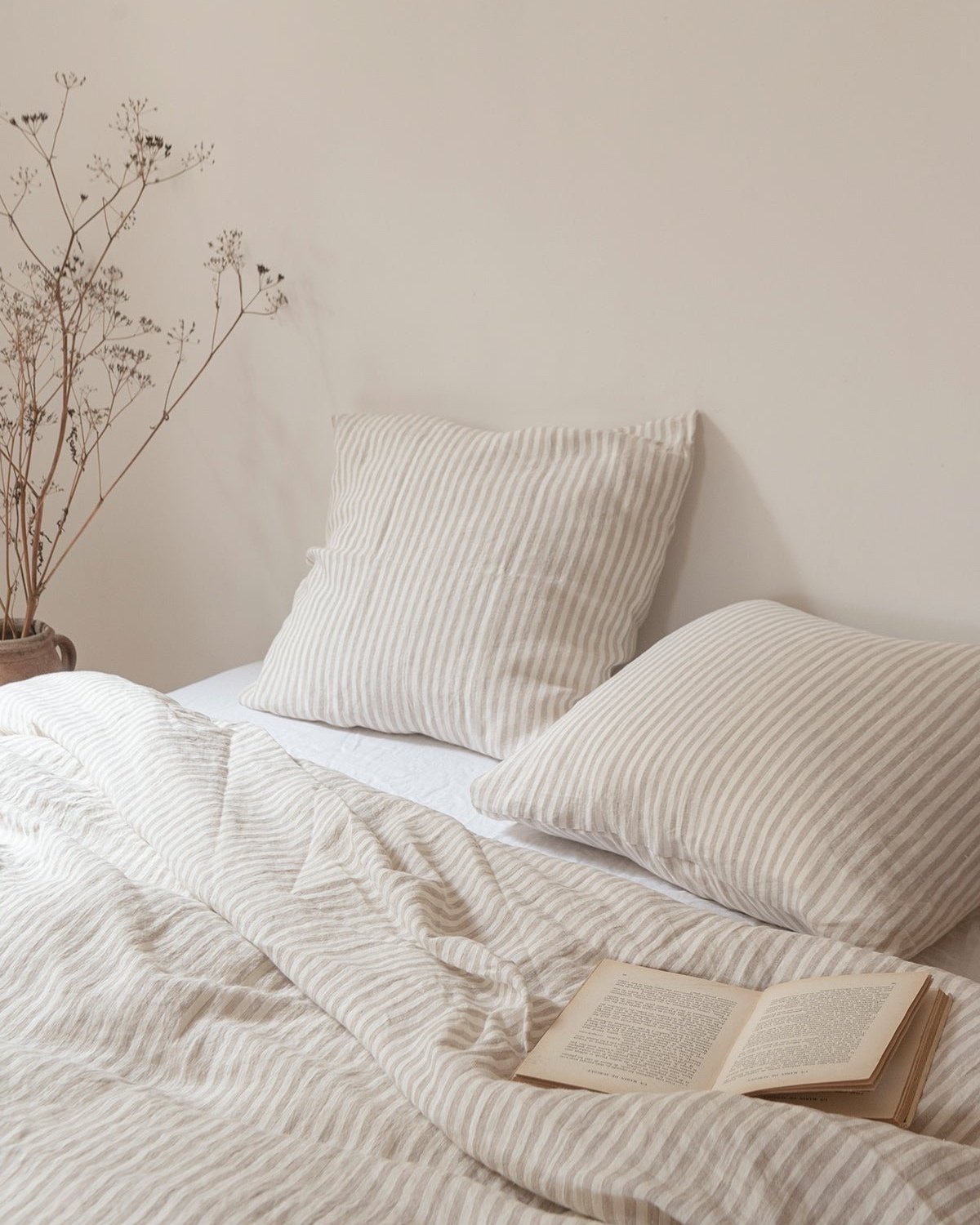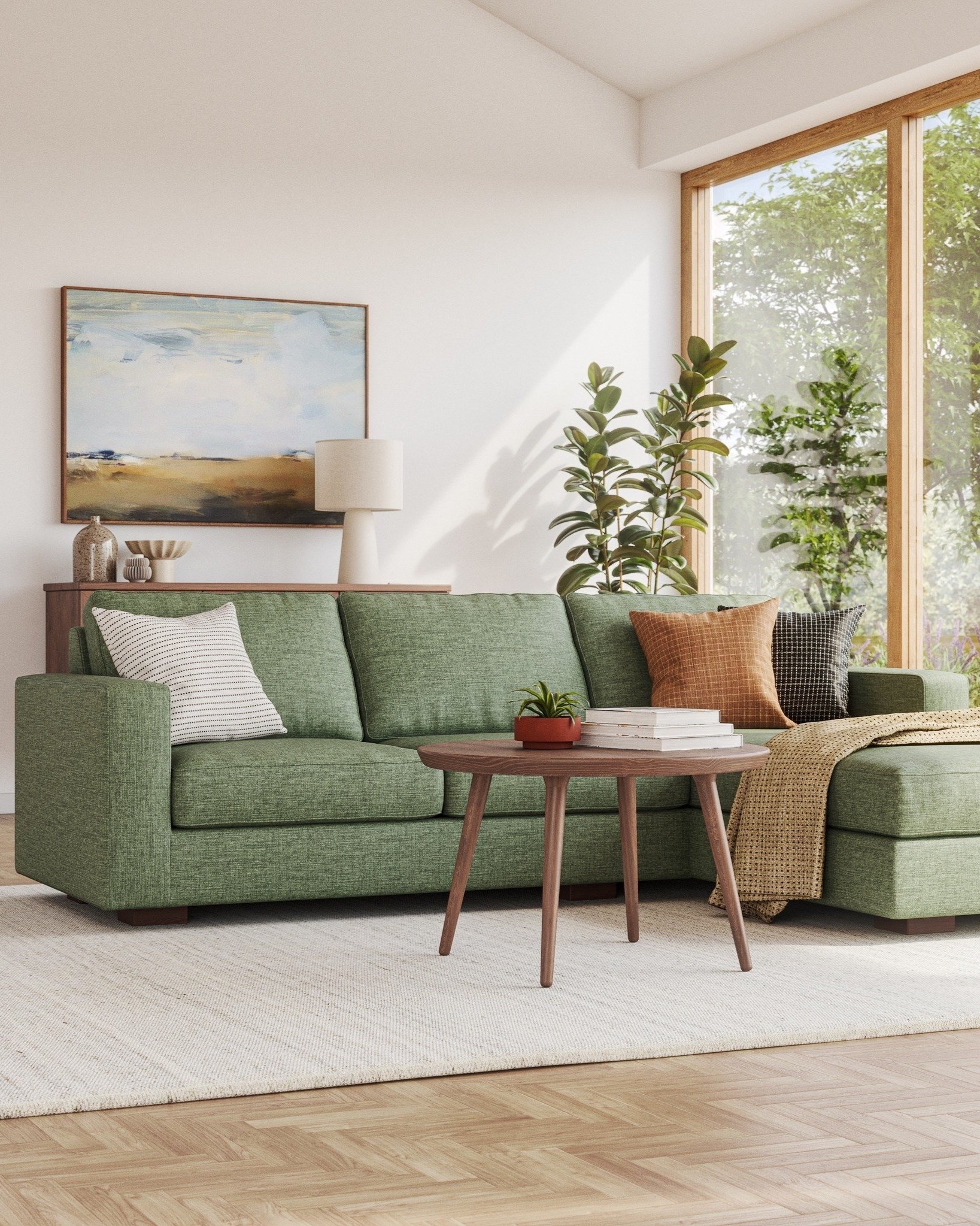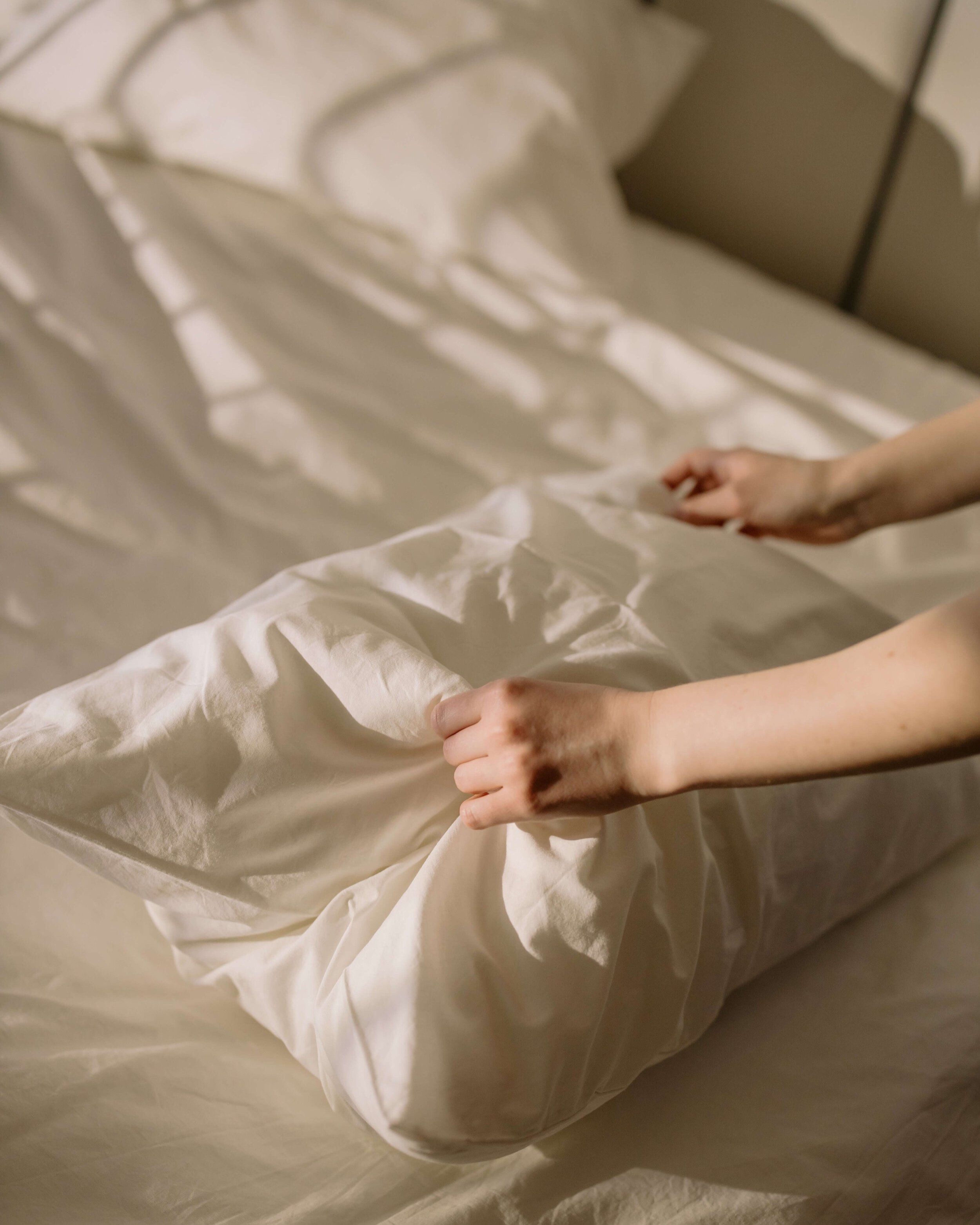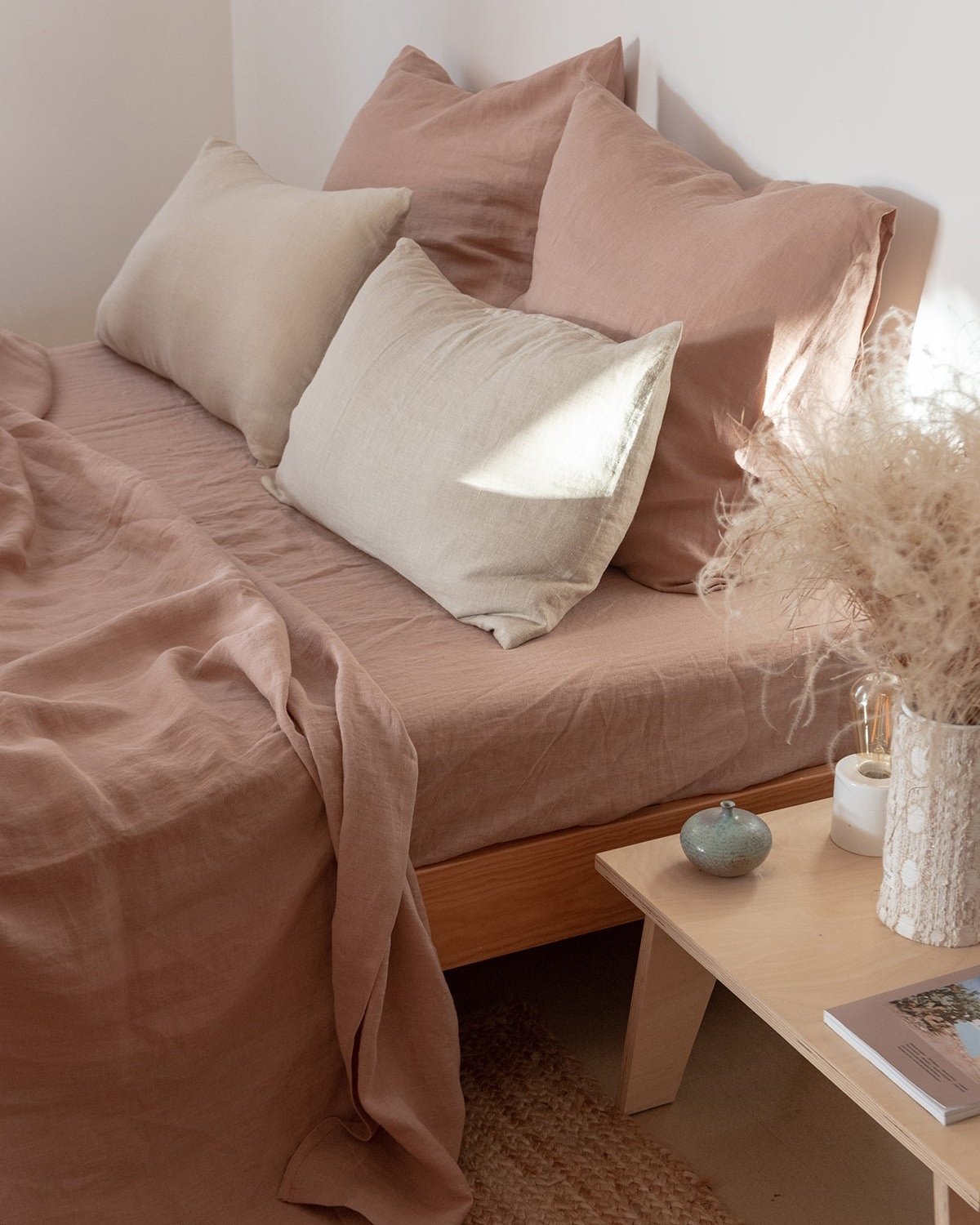A Guide to Ensure Your Flowers Are Sustainable & Ethical
Disclosure: Some of the links below are affiliated; we may earn a small commission if you click through and make a purchase. We only feature brands that align with our values and contribute to a better world. Thank you for supporting these brands - and us!
Where to Find Sustainable Flowers
On Saturday mornings in the Summer and Fall I treasure taking a little time to myself to stroll through the farmer’s market and pick out a beautiful, fresh bunch of flowers. Flowers are so commonly used to mark special occasions, such as weddings and birthdays, that they are often equated to joy and love. Through all these years, I haven’t given much thought to where flowers come from when my husband brings some home or I get some delivered to my mom. In researching for this article, I found out there is much to learn about the flower industry.
Let’s explore what is currently unsustainable about the flower industry, what to look for when searching for more sustainable choices, and where you can find the best options.
Why the Flower Industry is not Sustainable
According to this article in ideas.ted.com, flowers are annually a 55-billion-dollar industry in the USA. Most of the flowers we buy don’t come from the USA, most come from Columbia, and the environmental impact of growing and transporting them is much greater than I realized. The negative impacts of flower growth include:
High water usage: According to that same article, more than half of the water extraction from Lake Naivasha in Kenya is used to grow flowers.
Pollution from chemical pesticides and runoff into the water: According to Green Matters,“There are no limits on the amount of pesticide residues on these plants…. The result is a highly toxic workplace and a highly toxic rose.”
High carbon emissions from refrigeration, transportation, and greenhouse growing methods: Also according to Green Matters, in 2018, Valentine’s Day flowers grown in Colombia and flown to US airports produced some 360,000 metric tons of CO2.
Dangerous working conditions: Exposure to toxic chemicals for labor in the floral agriculture industry is high. In Kenya and Columbia, flower production is one of their biggest industries, and mainly employs women who work up to 16 hours a day for low wages.
What You Can Do When Shopping for Your Next Bouquet
The most helpful thing you can do is look for flowers grown by local farmers. This reduces carbon emissions, supports the local economy, and gives you beautiful bouquets that last longer. Keep in mind, just because a store is local doesn’t mean their flowers are. Ask your florist if their flowers are locally sourced. If they are not, ask them to source their blooms from local farmers. If there are no local flowers in season, then find a florist who at least has flowers from the USA to reduce the carbon footprint of transportation.
Visit a farmer’s market to find local, in-season, amazing bouquets that are usually cheaper than at the florist. Farmer’s markets are really one of the best places for fresh flowers. When shopping, even locally, look for farms that grow their flowers organically without harmful pesticides and use sustainable growing methods. Certified organic flowers are available; however, they are not yet in high demand. The more people seek them though, the more florists will carry them.
Don’t just stop at the flowers though; consider the packaging. Ask for flowers that are not packaged in plastic or with floral foam to reduce single-use plastic waste. Finally, consider what to do when the flowers die. You can recycle flowers by making potpourri; or incorporating them into soaps, candles, or bath bombs. Flowers can also be composted.
Online Sustainable and Ethical Floral delivery Options
Due to the growing interest in sustainable products, there are now a few online options for buying sustainably and ethically grown flowers as well.
Bouqs
One option for your floral needs is Bouqs. According to their website, “Bouqs believes in farm-direct, transparent sourcing, which means partnering with farmers who use sustainable growing practices like minimizing waste and recycling water”. Ensuring their products are grown more sustainably and with few toxic chemicals, also means safer conditions for the workers who grow your flowers. Bouqs offers several shipping options. Same-day shipping is guaranteed to come from a local florist, next day from a domestic farm, and no rush which is shipped internationally. Finally, I love the Bouqs has a clear commitment to diversity and inclusion in their company and partnerships.
Farmgirl Flowers
Farmgirl Flowers, which is woman-owned, started with a single high-quality bouquet, and they still offer a minimalist model. They create one high-quality arrangement a day made entirely from flowers sourced from American farmers. Don’t worry, they offer more than one product on their site, so you have many choices.
According to their site, they offer signature burlap-wrapped bouquets, shippable vase arrangements, single variety bouquets, plants, and gifts. The burlap wrap is even repurposed from coffee roasters.
Their aesthetic is unique and just fabulous too!
ReVased
Another good bet for your bouquets is Revased, which started in 2019 by upcycling flowers from events. When COVID hit they shifted their model to sourcing flowers directly from farms to the consumer to reduce waste and pollution from shipping. Most of their partner farms are Rainforest Alliance Certified, meaning they pass rigorous checks for sustainable and humane practices. They also still upcycle flowers from events, further reducing waste. A big bonus of shopping from Revased is part of your purchase will go to support several non-profits monthly, including senior service centers, women’s shelters, and cancer support centers.
online resources for local flowers
Association of Specialty Cut Flower Growers : Find Local Flowers
The Association of Specialty Cut Flower Growers (ASCFG) was “created to educate, unite, and support commercial cut flower growers.” That sounds pretty generic, but what makes the organization worth checking out is its strong focus on supporting the use of locally grown flowers. They support research, mentoring programs, grants, events, and public education to help grow the local floral industry. The best tool they have for us as consumers is the ability to search for their site to find local flowers for everyday occasions or large special events just by entering your zip code. I was able to find 11 options within 30 miles of my zip code! You really should check it out next time you are searching for fabulous flowers, no matter where you are.
Local Harvest
Local Harvest has long been a go-to site to connect you to local farms for food. They offer much more than that though. You can search for herbs, health products, coffee and tea, restaurants that use produce from your favorite farms, farmer markets, chocolate, and more. Their searching options include dried flowers, edible flowers, and fresh flowers. Local Harvest provides user reviews for the farms. They also indicate if the farm is certified USDA organic and if they are a Local Harvest supporter. Local Harvest is one of the best sources for getting to know farms in your area.
a few more sustainable floral arrangement ideas
Whole Foods
If you have a Whole Foods in your area, they are a good option for picking up flowers at the last minute. Look for flowers that are marked organic or locally grown. If you are not certain while shopping you can ask one of the floral department employees. They also have flowers that are designated as Sourced for Good. In this program, they partner with farms that have certifications like Fair Trade or Rainforest Alliance to ensure they are meeting high standards for how they treat the planet and people.
Other Sustainable Options
Other even more eco-friendly options are house plants, dried flowers, or growing your own. House plants and dried flowers can last much longer, thereby making them more sustainable. Just like with your flowers, verify that the farm is local and uses organic or other sustainable practices. Get recommendations for local nurseries in your area and ask where they source their seeds or starts from, how they grow their plants, and their expert tips on plant care. I just put in my first flower bed this year and it is doing pretty good. I have only had to replace 2 out of 12 flowers so far, which is better than I thought I would do. Every time I see a flower head pop up it brings a little joy. It is fun to watch them grow and relaxing to tend to them. Investing your time in growing plants and flowers means you are not only doing good for the planet; you are also doing good for yourself.
About the Contributor: Mindy Redburn-Smoak has enjoyed a 20+ year career in corporate learning as a consultant, designer, and manager. She is passionate about sustainable living, family, travel, and dog rescue. She has been on a mission to live more sustainably for several years, and loves the journey of learning and trying new things in this space. She is on another journey pursuing her dream of writing about things she is passionate about and that can make a difference in the world. The best way to connect with Mindy is via email at mredsmoak@gmail.com.
MAKE SURE TO PIN THE PHOTO BELOW TO SAVE THIS POST FOR LATER!
WANT TO FIND MORE SUSTAINABLE BRANDS?
The Brand Directory features hundreds of sustainable brands approved by us!
We have broken everything down by category for easy shopping, along with discount codes unique to Sustainably Chic viewers.

